Big Brother is watching your every move
As if the NSA, the FBI and the DHS spying on American citizens were not sufficiently outrageous, the CIA, which is supposed to operate outside of the country, has now joined the pack and is spying on US citizens as well.
Mass surveillance of US citizens is being conducted by the CIA. The National Security Agency was known to be collecting bulk data with the cooperation of big tech firms.
So does privacy really exist in the country? Do Americans even know who is watching them? Are they aware their privacy is being compromised and in what areas of their lives are they being spied upon?
Big Brother is everywhere
A number of different US intelligence agencies are spying on Americans, including the CIA, which is proscribed from operating on American soil.
How much do Americans know about the type of data being collected from them, and how can they protect their privacy, and how does Washington get away with spying on American citizens?
It has been revealed that the CIA has been conducting mass surveillance on US soil and has been spying on American citizens for years.
A newly declassified letter by two Democratic senators shows that the United States Central Intelligence Agency has been collecting bulk data for years; they say that the data can affect American citizens and their privacy and that the CIA has been collecting these compromising data without a warrant.
There's a secret CIA surveillance programme, and it's allegedly been collecting data in bulk, including information about lots of Americans.
That's the accusation from two Democrats on the Senate Intelligence Committee.
Senators Ron Wyden and Martin Heinrich say the programme has been operating without any oversight, and they're now accusing the CIA of hiding the details about it from the public and from the Congress.
The senators are calling on the agency to declassify the information about the programme.
CNBC Host
Ron Wyden of Oregon and Martin Heinrich of New Mexico were the senators who revealed this information in a letter which has not yet been completely declassified.
In the letter they asked Admiral De Haynes, Director of National Intelligence, and William J. Burns, the director of the CIA, to declassify these activities and explain the rules and regulations governing the collection of data and information about US citizens.
Why is the CIA collecting data from US citizens in the first place?
That sounds like an easy question, but it's actually a difficult one. First of all, the CIA legally is not allowed to collect information on US citizens or anyone called a US person, which is anybody in the country legally on a green card or on an immigrant visa.
But since 911, it is as though, it's as though the rules, the laws, have just gone out the window. And so all the CIA has to do, whether it's in the courts or before the oversight committees on Capitol Hill, is to say the words national security, and then they're essentially allowed to do anything they want.
In this case, what they're doing is vacuuming up as much bulk data as they possibly can, whether it's data from an American or US person or a foreign national, they're storing it in huge Cray computers in the desert in Utah, and they just will deal with the legality of it later [sic].
John Kiriakou, Former CIA Counterterrorism Officer
After the letter by the two senators exposed that the CIA programme was completely outside any kind of statutory framework, or without any form of oversight from the judicial, congressional or executive branch, the American Civil Liberties Union set out in a statement that “these reports raise serious questions about what information of ours the CIA is mining, indiscriminately, and how the agency exploits that information to spy on Americans. This invasion of our privacy must stop”.
How can Americans protect themselves from this systemic invasion of privacy?
The only protection we do have is the fact that they collect so much, massive amounts of information, that they're constantly looking for needles in a haystack. You know, no, American should assume that he or she has a bit of privacy in anything we do.
It is a kind of surveillance state that we live under that under. For example, the Stasi (notorious East German Security force), or the Soviet Union; they couldn't even imagine having this kind of surveillance that we have in the United States, because the technology wasn't there.
We have the technology. And we know now from Snowden, we know from this recent letter that was sent by two senators, talking about this secret bulk collection of the CIA of Americans [sic.], we know from all of these sources, going back to the church commission back in the 70s in the United States, the extent to which we are all under surveillance, by our own government, the government that is supposed to be working for us, is actually spying on us.
Daniel McAdams, Ron Paul Institute for Peace and Prosperity
Edward Snowden famously leaked highly classified information from the US National Security Agency in 2013, uncovering massive surveillance by the NSA and the Five Eyes intelligence alliance with the cooperation of tech companies.
We are about to witness an enormous political debate in which the spy agencies and their apologists on TV tell us that there is nothing wrong with this and that the CIA doesn't know how many Americans are in the database or even how they got there in the first place, but this is neither normal nor acceptable.
Do Americans have any privacy?
The Americans have no privacy, none. None whatsoever, whether it's on your phone, in your emails, in your text messages, on social media or anytime you're in public, there is no expectation of privacy. You know, there's a court case right now saying that the law about privacy and communications was written before the internet was created.
And the law says that the government cannot open your mail. Well, it doesn't say anything about email because email hadn't been invented.
Well, the government is arguing that when you write an email and you send it to someone, the company that runs the email or that owns the email, Google, Microsoft, Apple, whatever, they have access to the email to the contents of it, and so if they have access, the government should have access as well, and so as a result, there is no such thing as privacy in communications.
John Kiriakou, Former CIA Counterterrorism Officer
Glenn Greenwald the American journalist who first received information from Snowden and then exposed it in The Guardian also wrote on Twitter that the CIA is a criminal organization. Their interference in US politics is particularly pernicious.
Maybe news outlets should stop hiring all of the people who run this agency to help "analyze and report the news".
Maybe journalists should be skeptical of their planted stories.
Well, it's a good question the CIA was set up in 1947 under the National Security Act of 1947. The purpose of setting up the CIA was to create an organization that could in one stop, inform the President about things that were happening overseas. It was in response to the end of World War Two and the beginning of the Cold War, and after World War Two, there were scattered intelligence agencies through the military and elsewhere. The OSS, of course, during World War Two.
So the idea of this was to consolidate the intelligence collection and analysis capabilities of the US government in one area, and this was signed by President Truman. President Truman did say in his memoirs, if he had known what would have happened to the CIA what it would have become, particularly in terms of its covert action, he never would have approved it, never would have signed it, never would have brought it into being.
Daniel McAdams, Ron Paul Institute for Peace and Prosperity
It is nothing new that intelligence agencies in the US spy and gather all the information they can from their citizens.
Snowden revealed in 2013 that the NSA was spying on Americans, and later he was forced to seek refuge in Russia for fear of persecution and imprisonment.
At the time, the NSA had gained direct access to the systems of US Internet giants like Facebook, Google and Apple, as well as other companies.
This access was part of the PRISM programme that the NSA used to collect internet communications from various US internet companies.
Has anything changed since then?
Well, very little has changed because members of Congress and Senators, very, very few of them have shown any stomach whatsoever to challenge what we call the national security state in the United States. And that includes the CIA, parts of the FBI and others. You know, when the Snowden revelations came out there was an uproar, there was a lot of loud noise and there was some calls for reform. [sic.]
But you know reform in Washington always means that you get to keep doing the stuff you were doing, you just call it something else. And so they renamed the Patriot Act, but they kept all of the worst aspects of the Patriot Act, and called it the Freedom Act. There's just an example of what they did. So short answer to your question is very little changed at all after the revelations because Congress had no stomach for it and the American people are very, very easily distracted by other things.
Daniel McAdams, Ron Paul Institute for Peace and Prosperity
Under the PRISM programme, officials were collecting material which included, but was not limited to, search history, content of emails, file transfers, and live chats.
These collections were made directly from the servers of major service providers. The actions were made possible by changes to US surveillance laws, which were introduced by former President George W. Bush, and later renewed by former US President Barack Obama in December 2012.
Are Americans aware what type of data is being collected from them?
I think most Americans realize what the government is doing the problem is, I think, most Americans don't care what the government is doing. You know, Joseph Goebbels said something in the 1930s “why are you worried about it if you haven't done anything wrong?” Well, that's exactly the opposite of what our position should be.
Our position should be that the government has no business in our communications. It has no business collecting our data, unless it has evidence that a crime has been committed, and it goes through the proper channels to acquire that data. But in the meantime, it shouldn't be gathering any information on Americans who have not been accused of a crime in a court of law.
You know, we can we can extend that we can we can say that. It's not just our communications but in virtually every aspect of our lives. The government is involved now, you know, it's not just the the intelligence agencies, either it's, it's every aspect of government, whether it is DARPA or the FBI or the Drug Enforcement Administration or the Bureau of Alcohol, Tobacco and Firearms or the border agencies. We have no privacy.
John Kiriakou, Former CIA Counterterrorism Officer
The programme was not only for Americans living in the US, but also targeted any customer that participated with these tech firms, whether living in or outside the United States. This spying doesn't stop there, either.
Because the United States is also a party in a multilateral agreement, which is an intelligence Alliance comprising Australia, Canada, New Zealand, the United Kingdom, and the US. This alliance is called the Five Eyes also known as FVEY.
This is a special kind of alliance, a special kind of relationship. And when I say special, what I mean is that these five countries share with each other literally everything. It's not unusual, for example, to have representatives of the Five Eyes intelligence services, working in each other's buildings, in each other's headquarters.
They give each other complete access to files and to data and technology. They don't spy on one another. It's it's a relationship of open sharing.
Now, that's very dangerous if you ask me because not only do I have to worry about my government, intercepting my phone calls, my emails, my text messages, but I have to worry about them sending all of my personal data to the Five Eyes countries, which have even less of a right to my information than my own government does.
John Kiriakou, Former CIA Counterterrorism Officer
The Five Eyes alliance goes back to World War Two, some of the activities of this alliance was revealed by Snowden, indicating that the intelligence agencies within the FVEY have been spying on one another's citizens and then sharing the information they have collected with the other members in order to thwart preventive and restraining regulations on surveillance of citizens and essentially leaving the spying to the intelligence organizations of their allies.
The CIA is forbidden by law from spying on American citizens. But one way they get around this is by leaking some of the information to, for example, the Australian intelligence services, and then that is picked up as foreign surveillance.
So the Five Eyes are very useful for when the CIA wants to spy on Americans, but technically is not allowed to do that. They go around; they go around the other side. So I think Americans should assume that literally everything they do is being watched and listened to and recorded; for potential future use. It's kind of a pre crime.
Daniel McAdams, Ron Paul Institute for Peace and Prosperity
Some politicians have spoken up against these invasions of privacy. Utah, Republican Representative, Chris Stewart, recently said that Congress needs to reassert control over the intelligence community's activities inside America. Stewart added "if you want to build an American KGB, if you think that's a good idea then keep going down this road".
Stewart's worry is mostly because he believes US intelligence agencies are going after white supremacists who are, by and large, in favour of the Republican Party.
The CIA is not allowed under law to spy on Americans directly as such. However, for example, our conversation right now because you're not in America, that's fair game for them to listen in on. And we must assume that they are listening in on this call, and any other overseas call. And even if it's not something they're actively looking [sic.], they'll just simply sift it up.
And they have massive, massive storage facilities. They'll just store for a future date. They want to build a case on someone down the road 10 years, well, they can always look back and see what they were doing 10 years previous.
So Americans should assume that they have zero privacy until they wake up and demand that their members of Congress do something to restore it.
I mean, it's very ironic that America goes around the world, blowing things up and lecturing people on how they need to have a democratic government and privacy and civil liberties. When in fact, at home, we have a scarcity of all of these things, and no one seems to give a darn about it. And that's the sick part.
Daniel McAdams, Ron Paul Institute for Peace and Prosperity
Consequently, many feel that the US is essentially a police state. In the courts, Prosecutors claim to have information and evidence against a defendant that is classified and that defendant is not allowed to view said evidence.
They collect evidence and information by whatever means they please and as they know the courts may reject the case due to legal technicalities, such as lack of evidence, they conduct reverse engineering and collect information they already have through other means and use the alleged data source to prosecute and charge defendants with evidence that they cannot defend themselves against.
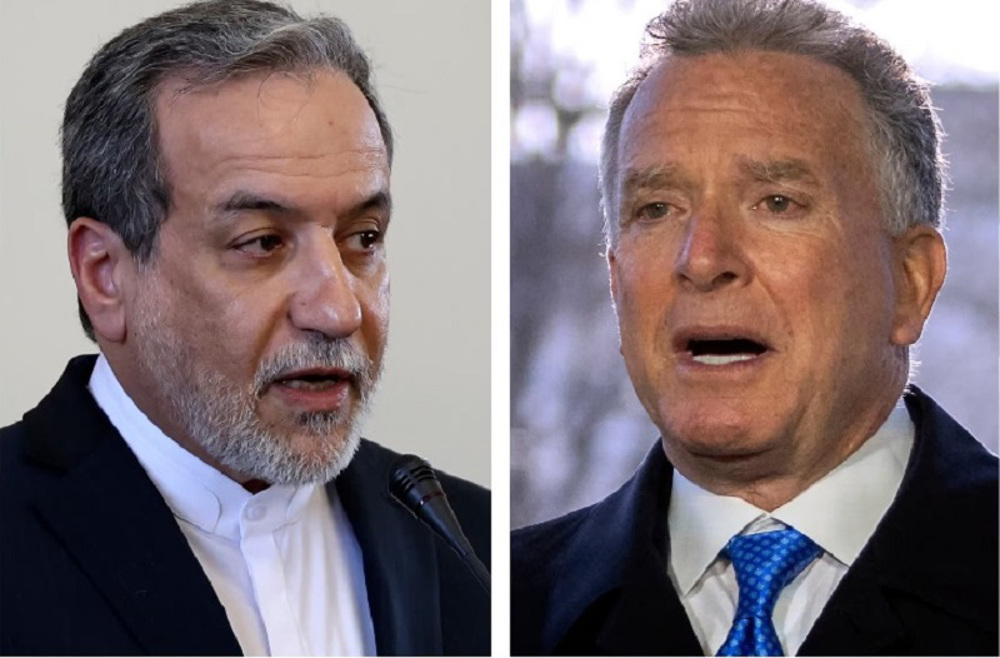
Indirect Iran-US talks proceed on 'constructive' note
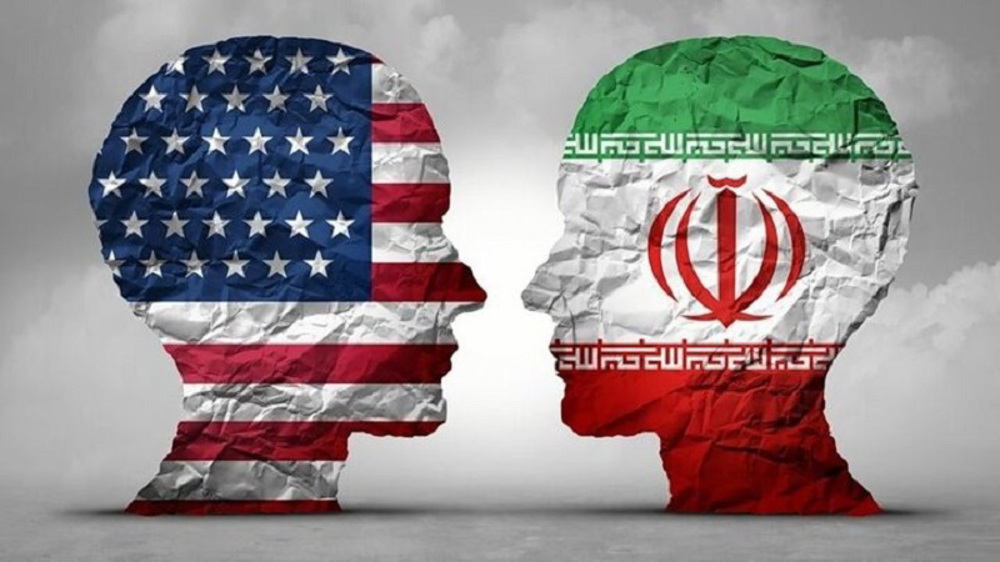
Indirect Iran-US meetings
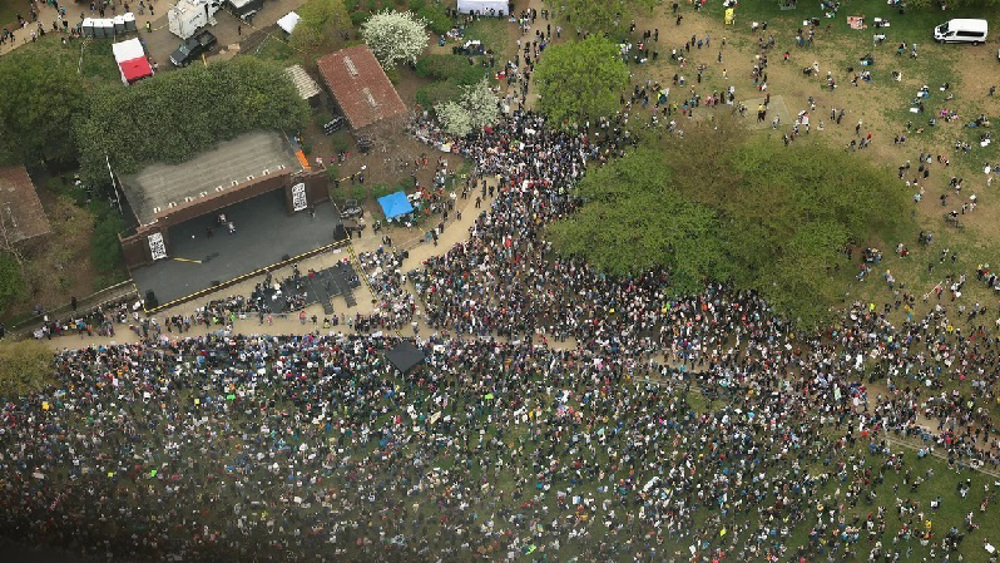
Trump induces socio-economic turmoil in Washington
VIDEO | Press TV's news headlines
VIDEO | Pope Francis dies at 88 after 12 years as Catholic leader
VIDEO | US bombs Yemen’s capital in escalating military campaign
Iran condemns baseless GCC claims on 3 Persian Gulf islands
At least 65 Palestinians killed inside Israeli prisons
VIDEO | US deadly aggression vs Yemen
Iran denies US investors will be present in its trade fair
Israeli forces kill three Palestinians in intensified West Bank raids


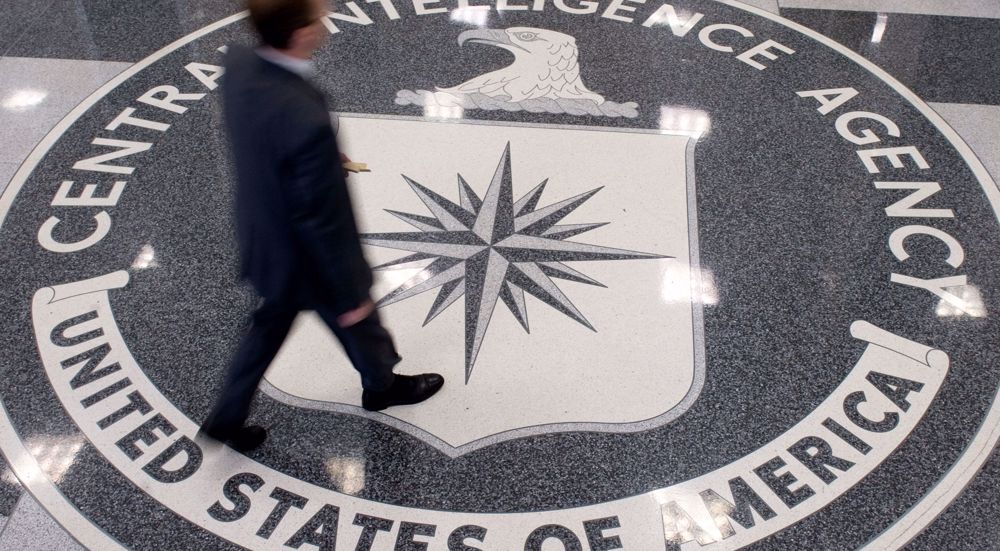
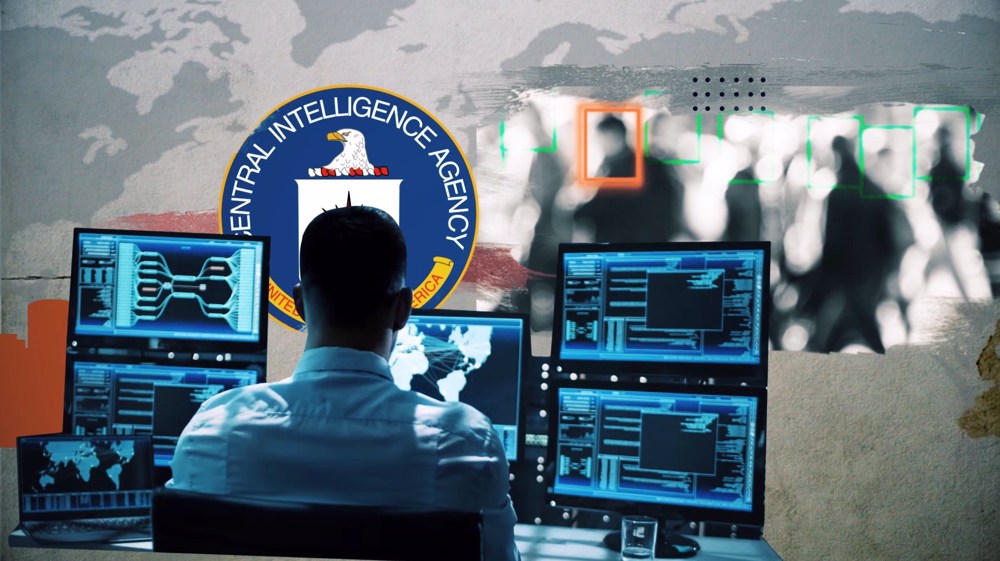
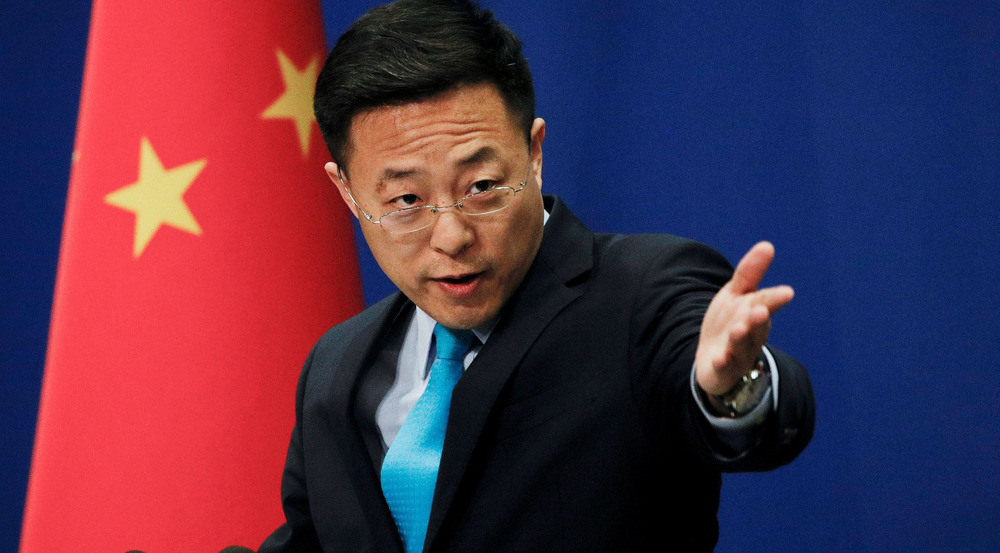

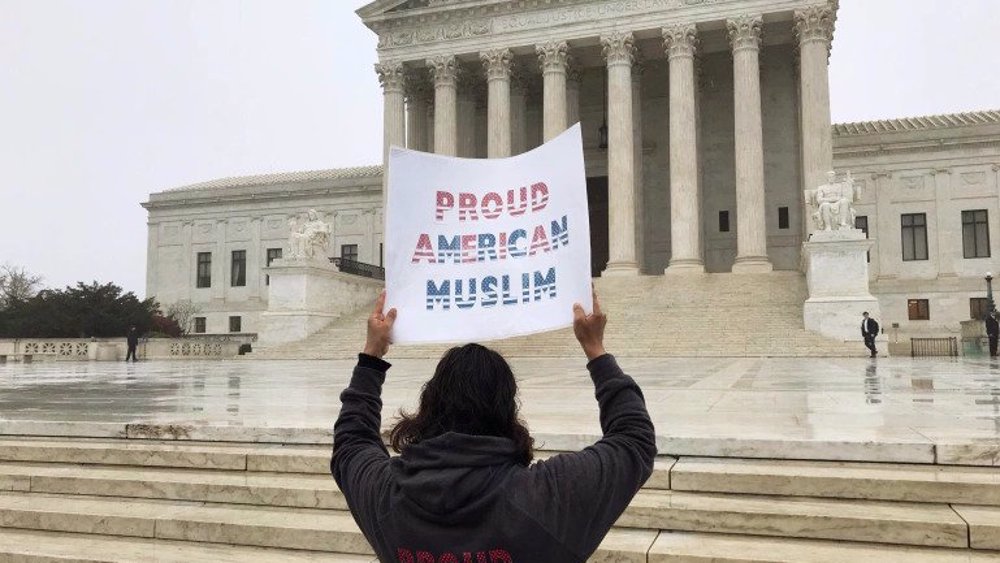
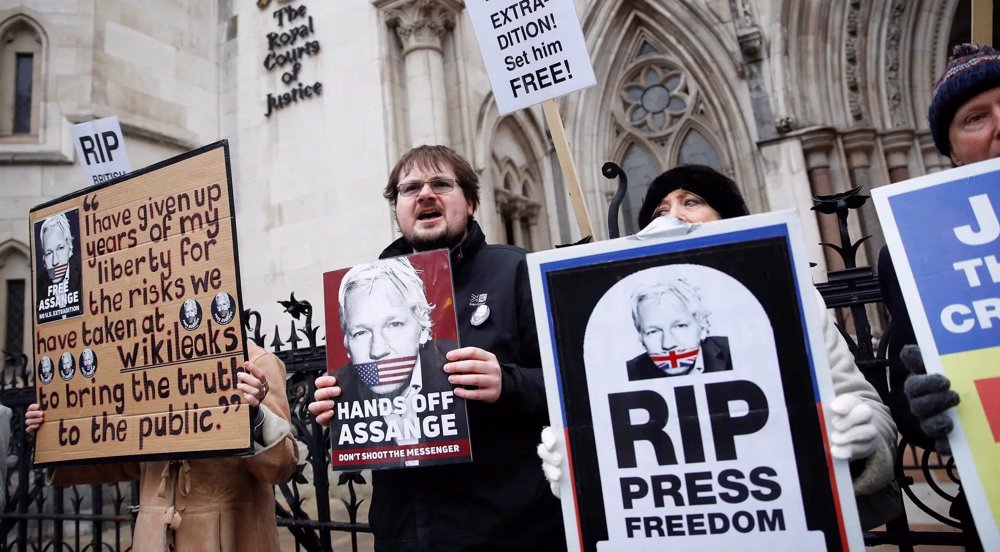
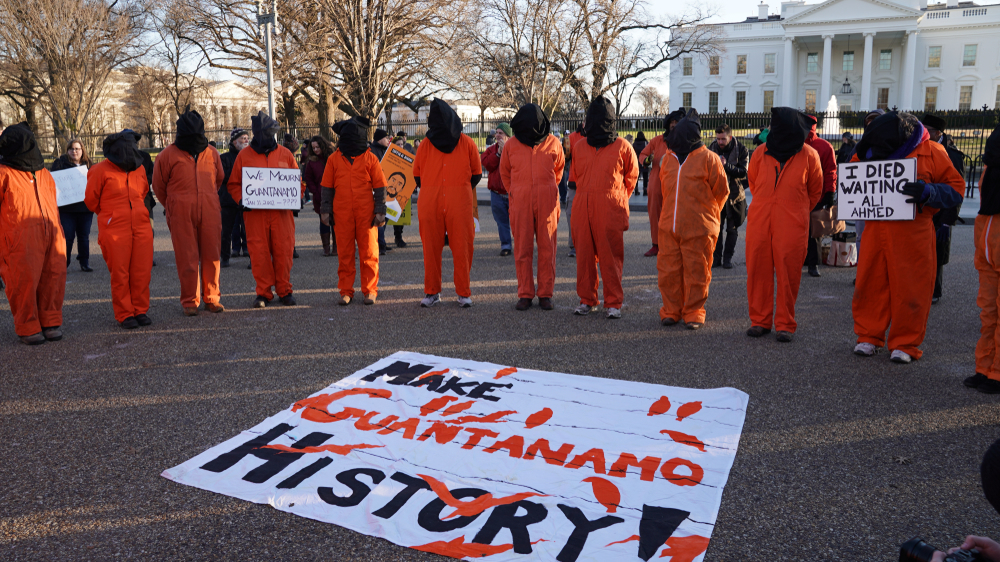
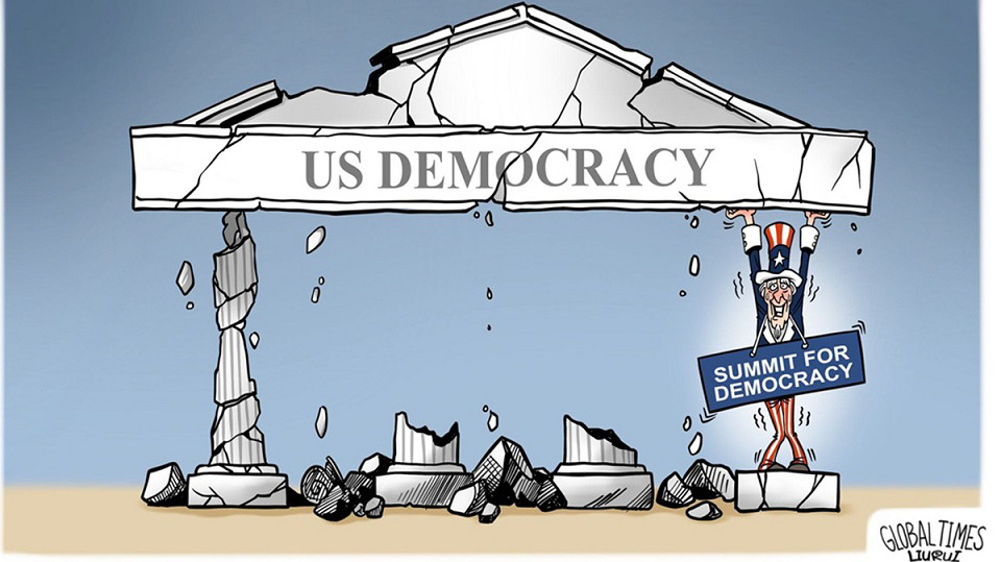
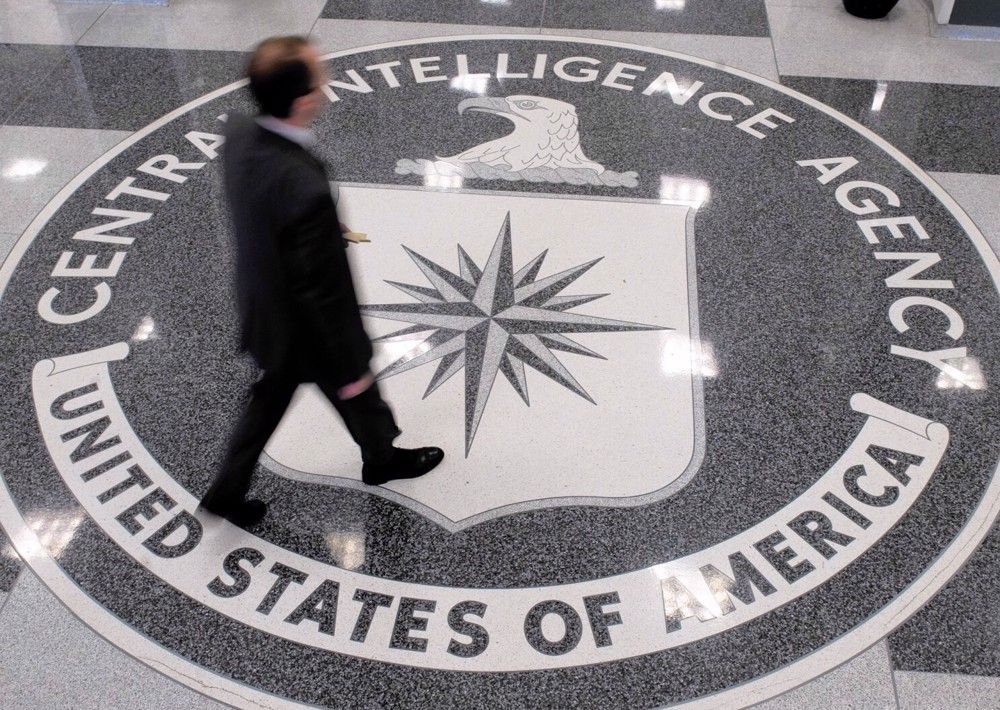




 This makes it easy to access the Press TV website
This makes it easy to access the Press TV website